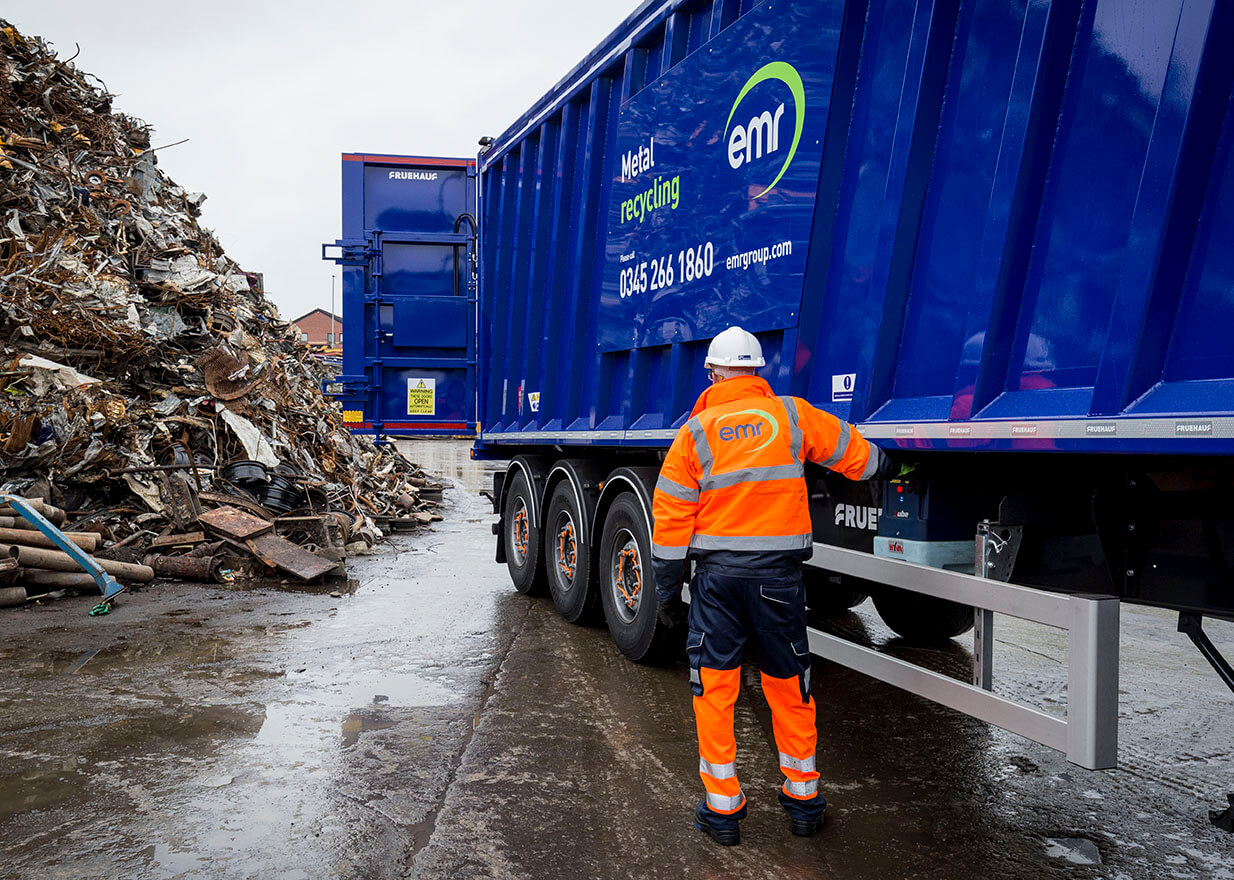CHOOSE
A DIFFERENT TERRITORY

For EMR, road transport is a vital artery that links together our customers, our products and the whole supply chain for recycled metals. In the run up to Christmas, the shortage of HGV drivers in the UK made national headlines and this long-term trend has created a considerable challenge for our business.
To ensure EMR has the team of well-trained, professional drivers it requires, we are continually investing in on-the-job training and support – whether a driver has been on the road for decades or is going through our rigorous driver apprenticeship programme.
As Area Transport Manager for the North West and Yorkshire, it is my responsibility to ensure that this approach is put into practice.
How does this work? Any driver who works for EMR must be able to work within our industry-leading health and safety and customer service standards, so training begins from a new employee’s day one induction.
EMR’s buddy system – which sees a new driver matched up to one of our experienced colleagues as they go about their daily tasks – lies at the heart of our approach.
Starting off in the passenger seat, a new driver will have the chance to visit a range of EMR depots, get to know our customers and learn first-hand how to complete paperwork and use our PDA job-tracking devices.
New drivers will then swap places with their driver buddy, who will continue to provide support for as long as is required.
While this supportive culture and the focus on providing safe, modern vehicles makes EMR an attractive employer for many of the UK’s HGV drivers, the recruitment market is highly competitive and EMR must set itself apart from other employers.
To ensure long-term sustainability of the industry, EMR also offers driver apprenticeships for novices. A mixture of on-the-job training and development from the apprenticeship provider, gives apprentices expert-level driving experience alongside the EMR-focused health and safety and customer service skills they need to succeed. With the right training and support, an apprentice can go from being a non-driver to a fully-fledged member of the driving team in as little as six months.
EMR’s focus on training and support doesn’t end there, however. Once a driver hits the road, regular training ensures that the team stays safe, operates efficiently and sustainably and gets to grips with the latest technological advances and regulatory changes.
We use modern telematics technology to track how our vehicles perform. Our team of expert driver trainers are available to provide further support as required to help our drivers make their driving style safer and more sustainable.
Plus, our drivers have a role to play in this, too. EMR operates a ‘Stop Work Authority’ which empowers every employee to bring a halt to our operations if they see someone at risk or feel our stringent health and safety standards are not being met.
EMR also invests in an Employee Assistance Programme which provides mental health and financial wellbeing helplines, run by third parties, to offer fully confidential and private advice 24/7, should any employees require it.
One reason for the high level of support is that EMR is a family business and every member of staff is a member of our community. But ensuring our staff have access to things like mental health support also makes business sense.
You can have all the rules and procedures written into the driver handbook but, if somebody is struggling, they aren’t going to be performing their duties in the safe, efficient and environmentally-aware way that a modern recycling company demands.
That’s why, at EMR, we work hard to ensure we have the best training and support available anywhere in the market. And it’s also why drivers are increasingly choosing to join our industry-leading transport team.